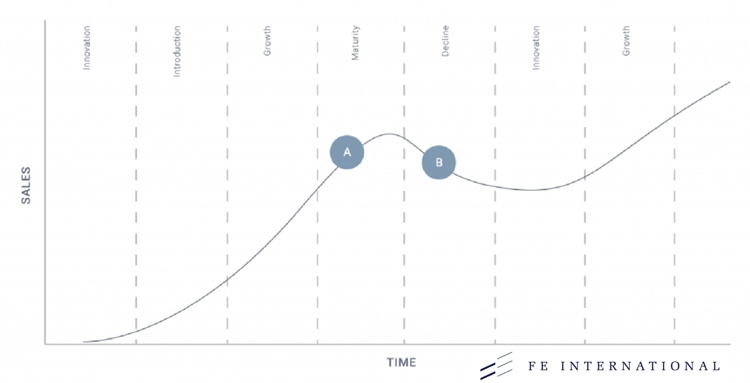A guestblog by Thomas Smale, Founder FE International
Building a business takes time and effort. Founders often get used to working hard for every gain, but there are some easy fixes that could dramatically boost your SaaS business’s value ahead of a sale. You could be selling your business for a number of different reasons, but these points need to be checked regardless of your company’s size, the time line you want a sale completed within, or your own professional experience.
Too often SaaS business owners erase a large portion of their hard-earned potential earnings by ignoring these suggestions, right when they need them the most. In no particular order, they are:
- Timing Your Development Cycle
All products move through a development cycle, and will sometimes be in need of more severe overhauls of their infrastructure or design. They may need crucial security updates or features added in order to remain competitive. If you are looking to sell your SaaS and want the best valuation possible, you need to time your sale right. If you try to market your SaaS business when the product(s) are in imminent need of development, then you will lower the ultimate sale price.
New owners don’t want an uphill struggle after acquiring a business. Make things easier for them and time your sale for a safe period in your development cycle.

- Simplifying Technical Knowledge & Owner Involvement
Many SaaS founders believe that if their work is technical and requires a lot of oversight, it must be a cutting-edge company with unique IP. While this may be true, it also means that transferring to a new owner could be a difficult process. At my company, FE International, 65% of our SaaS listings are bought by non-technical buyers. This means that, if you want to get the maximum return possible for your sale, you need to think about how a new owner will operate in your business.
SaaS founders may be tempted to look for buyers who already have SaaS-specific knowledge, but this can heavily reduce the potential buyer pool. Instead, founders should look at their processes and determine what of their own role could be outsourced or delegated to other employees who plan to stay with the company. Anything which will ease the transition of a new owner and reduce the amount of time they will need to spend on the business is beneficial. Most people looking to buy a mature business aren’t looking for a new job, and they will only want to dedicate a portion of their weekly or monthly time to their new venture.
Making sure good SOPs are in place, and your own role is reduced to a minimum, will serve to boost, not diminish the value of your business. The cost of hiring someone to fill a technical role will always be factored against the value of a business.
- Securing Intellectual Property
What may seem obvious to plenty of business owners still creates real problems for plenty of SaaS business owners when they come to selling up. It is ok to apply for patents late in the day, but one needs to ensure that all people who worked on the product’s code sign an IP assignment for their work. This goes double for freelancers, and one shouldn’t be embarrassed about asking for one retroactively as they are fairly standard in due diligence requests for $500k+ SaaS businesses.
Patents and trademarks can be applied for here.
- Avoiding Sales and Lifetime Plans
Many SaaS companies use sales and lifetime plan offerings to bring in an initial wave of customers, or to boost their revenue before a sale. This tactic is well known and can reduce the ultimate purchase price of a business. Buyers will usually factor the upkeep of any of these plans against the purchase price, or they will steer clear of the sale entirely. With sites like AppSumo becoming popular with tech start-ups, the positive buzz generated can often seem like it’s worth the risk. Only pursue this route if you feel it’s necessary, and the prospect of a sale is a long way off.
- Documented Source Code
Having a clearly mapped and annotated source code will be necessary for almost all sales of a SaaS business. Unless your business is particularly small, anyone looking to buy and scale a SaaS company will need to have an overview of your source code. Products that have been messily coded can create serious problems for new owners as they try to grow the business. So, making clear that your product has been built to scale is crucial. If your product’s code is a mess or hasn’t been properly documented, then you need to fix these issues to gain a premium valuation.
These are a few of the key things that can help you increase your SaaS business’s value ahead of a sale. If you are interested in learning more about how you can improve the value of your SaaS business, please read my article on SaaS Company Valuation here. If you would like a free valuation of your business, fill in our quick form here.

Thomas Smale founded FE International over ten years ago, growing the business from scratch to a seven-figure-a-year business. Specializing in advising and brokering the sale of established websites and online businesses, FE International has completed over 650 transactions. Smale has been interviewed on numerous podcasts and blogs and speaks regularly at industry events on online businesses, exit strategy and selling businesses.

